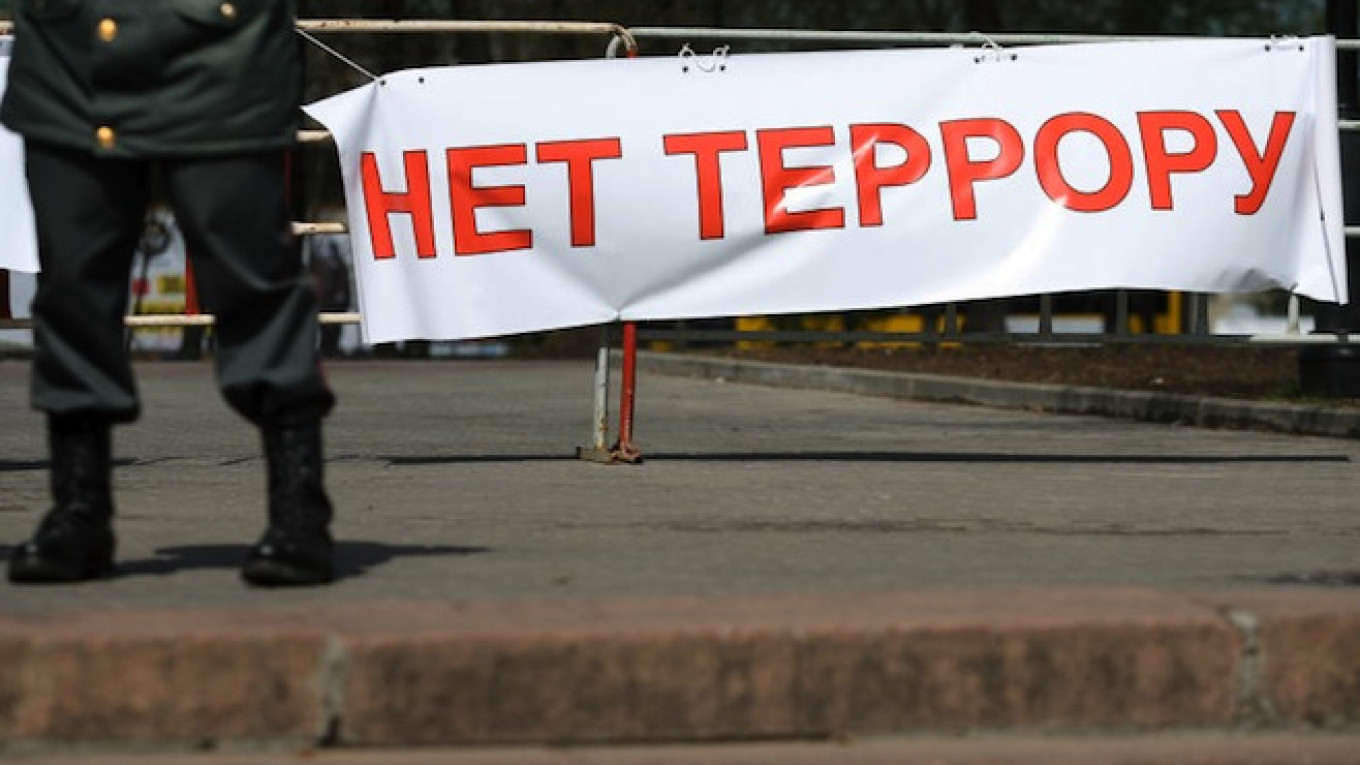The level of fear among Russians about the possibility of a terror attack is approaching those recorded in the direct aftermath of twin suicide bombings in Volgograd in 2013, new data by state-run pollster VTsIOM showed.
Seventy-two percent of Russians fear they will become the victim of a terror attack, up 7 percent from last month, the poll published Tuesday showed.
In January 2014, following the bombings of a train station and a trolleybus in the city of Volgograd, that number was 77 percent, the pollster said.
Meanwhile the number of people who said they were trying not to think about the issue had dropped from 18 percent to 12 percent, the data showed.
Only 15 percent of those questioned said they were confident they and their relatives were safe.
The pollster cited a recent series of coordinated terrorist attacks in Paris and the crash of a Russian Airbus over Egypt's Sinai peninsula in late October — an attack widely attributed to the Islamic State, a terrorist organization banned in Russia ?€” as reasons for the increase in fear levels.
The pollster named residents of Russia's largest cities, women, and people who said they had followed news coverage of the Paris attacks closely as groups among which fear levels had increased most.
Confidence in the Russian authorities remained high ?€” 64 percent of respondents said they thought the authorities could protect them from terror attacks. In October, that number was 77 percent.
VTsIOM expert Yulia Baskakova said people's faith in the authorities did not mean they were less afraid of the terror threat.
“Those who believe that the Russian authorities can protect citizens from new terror attacks, are roughly just as afraid as those who don't count on the authorities [for protection,]” Baskakova was cited as saying in an online statement.
The poll was conducted on Nov. 21 to 22 and questioned 1,600 people in 46 Russian regions. The margin of error did not exceed 3.5 percent.
Contact the author at? e.hartog@imedia.ru
A Message from The Moscow Times:
Dear readers,
We are facing unprecedented challenges. Russia's Prosecutor General's Office has designated The Moscow Times as an "undesirable" organization, criminalizing our work and putting our staff at risk of prosecution. This follows our earlier unjust labeling as a "foreign agent."
These actions are direct attempts to silence independent journalism in Russia. The authorities claim our work "discredits the decisions of the Russian leadership." We see things differently: we strive to provide accurate, unbiased reporting on Russia.
We, the journalists of The Moscow Times, refuse to be silenced. But to continue our work, we need your help.
Your support, no matter how small, makes a world of difference. If you can, please support us monthly starting from just $2. It's quick to set up, and every contribution makes a significant impact.
By supporting The Moscow Times, you're defending open, independent journalism in the face of repression. Thank you for standing with us.
Remind me later.


